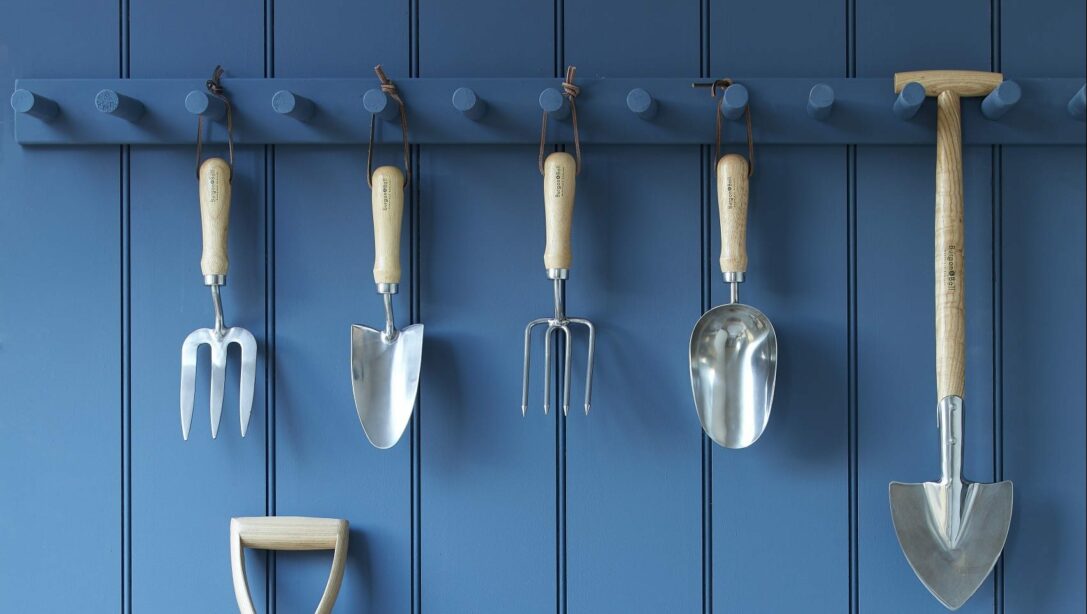Taking a little bit of time to care for your garden tools will help you get the best from them year after year. In this helpful guide, the long-running manufacturer of top quality British garden tools, Burgon & Ball, offers expert advice.
Cleaning Your Garden Tools
In an ideal world, you’d give your tools a gentle clean every time you use them. This is unlikely to be realistic, so at least aim for a pre-winter hibernation clean or some TLC before the spring gardening season begins.
To make sure your tools are thoroughly clean, gather together a bucket of warm water, some detergent and a brush with good stiff bristles. A washing-up sponge with a gentle scourer on one side is also handy.
First, knock off any heavy, dried-on mud with your brush. If your garden has heavy clay soil, your tools might need to be soaked before this is possible to remove. When the worst of the dried-on mud has come off, wash the tools in the warm soapy water. Scrub until they’re clean. If you have a scourer, use this to remove any dried sap on loppers or secateur blades. Once all mud and residue is off, rinse in clean water. You can either leave your tools to dry naturally in the air or dry with a towel.
Sharpening Your Garden Tools
Any of your garden tools that have blades will perform better with a really sharp edge. Sharp tools are easier to use and kinder to your plants, as they slice through stems cleanly. Blunt blades risk crushing stems, leaving the plant with a ragged wound that’s more open to disease, and more difficult to heal.
Choose the right sharpener for your tools:
- Pocket knives and small garden tools – miniature steels
- Most secateurs, loppers, hedge sheers – blade edge restorers or multi-sharpening products
- Large garden tools (or even heritage agricultural tools!) – scythe stones
- Topiary shears – topiary trimming shear sharpener. This specific tool allows both sides of your topiary shears to be trimmed in situ, preserving the all-important ‘set’ of the blades
Oiling Your Garden Tools
For the complete tool care experience, apply oil to cleaned and sharpened tools for extra protection. For cutting tools, rub an oily cloth over the surface of the blade, or over the tool head for stainless steel tools. This should leave a thin film of oil that will protect the metal by creating a barrier between the metal and the air and moisture that can combine to form rust.
The oil also lubricates any moving parts, such as where the blades of a shear pass over each other as the tool is closed, giving a smoother action, less wear on the blades for longer life, and improved performance.
Caring for your tools is enjoyable and satisfying. The time spent will pay you back, in terms of making gardening tasks easier and the longevity of your tools.
Tool Care Toolkit:
- Bucket (for soapy water)
- Brush with stiff bristles
- Scouring brush
- Relevant tool sharpeners – e.g. miniature steel, multi-purpose sharpener, stones




